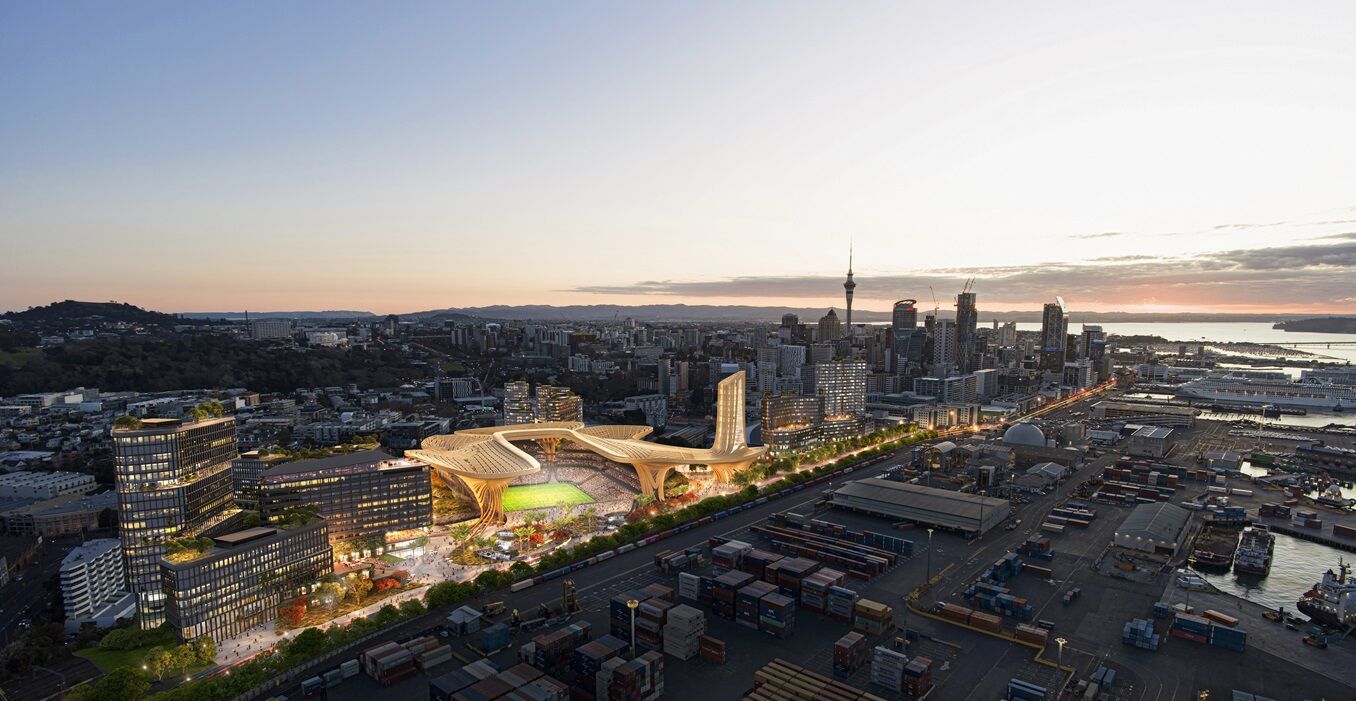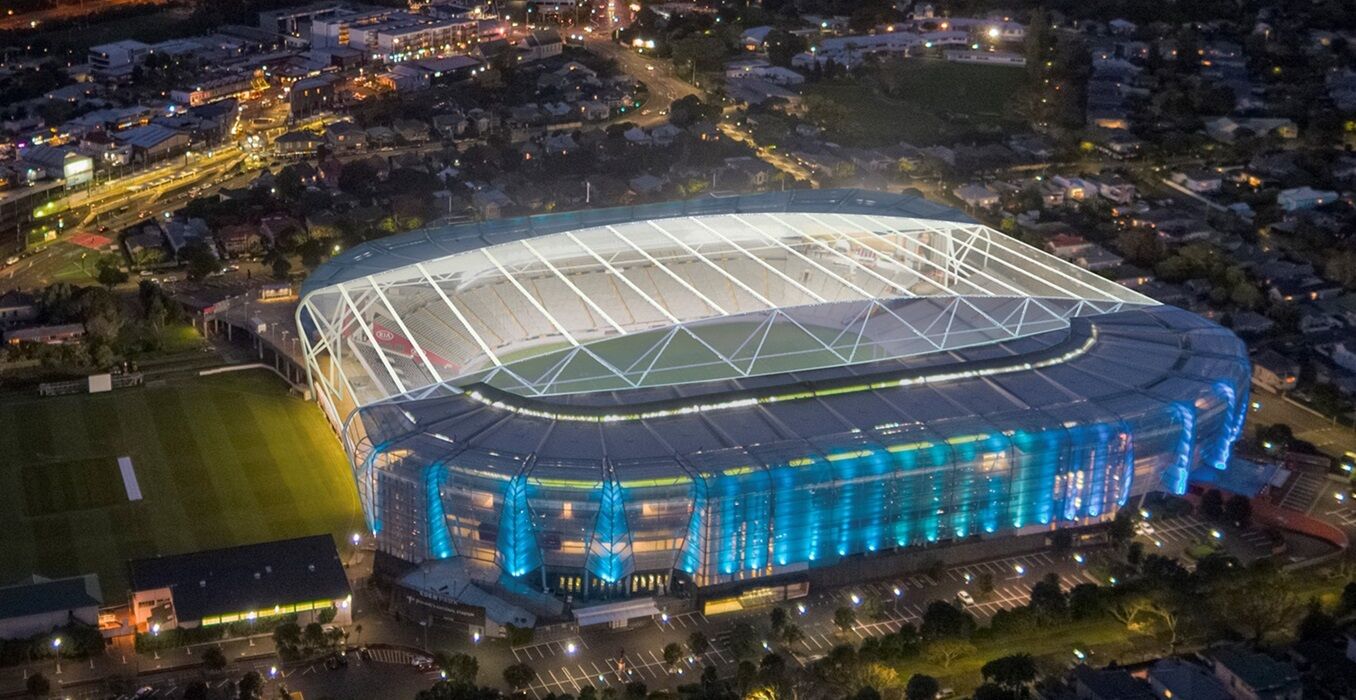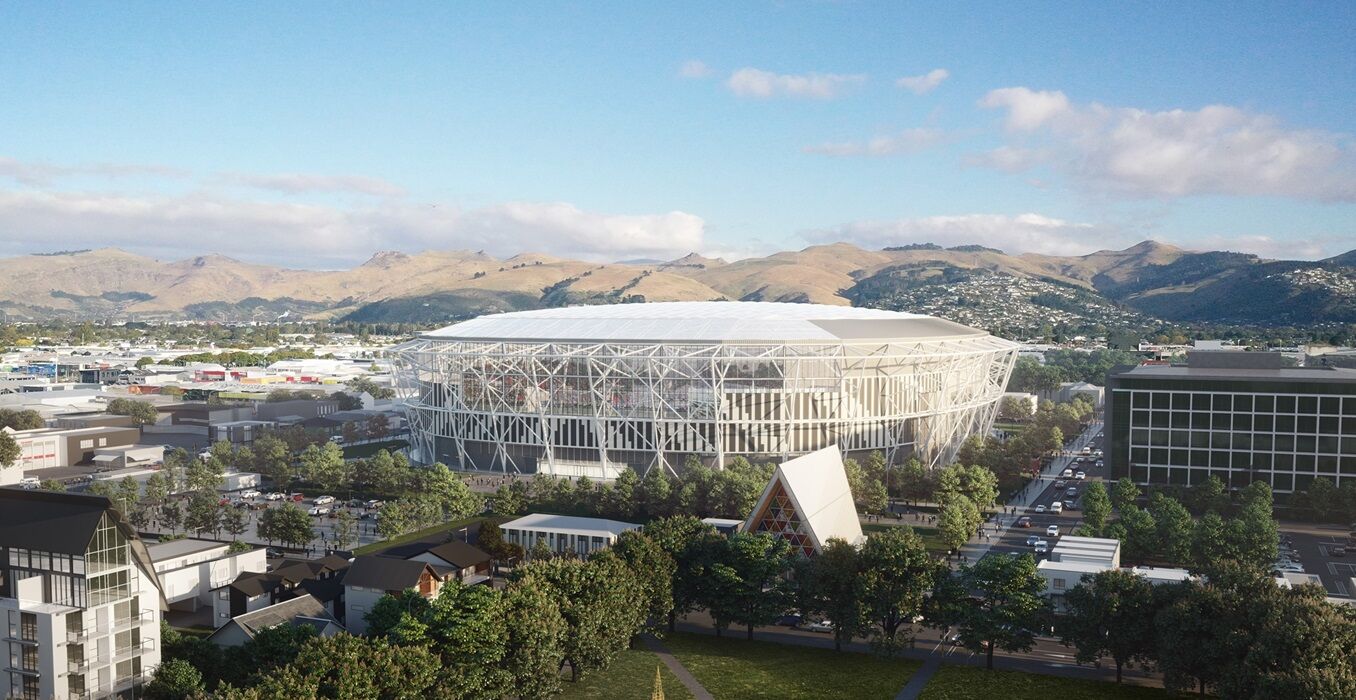 Te Tōangaroa - artist's impression
Te Tōangaroa - artist's impressionCommercial -
Commercial opportunities key factor in national stadium decision
With two bids remaining in the battle for an Auckland main stadium, the organisations behind those favoured developments each believe their proposals will offer significant benefits to the Auckland economy and opportunities for adjacent commercial property development.
Earlier this year, Auckland Council announced it would progress two proposals for Auckland’s stadium to a six-month feasibility stage. Those two projects are the Eden Park 2.1 proposal to revamp the current stadium in Kingsland, and a proposal by Te Tōangaroa Consortium to develop a new stadium at Quay Park, adjacent to Auckland’s CBD.
Bayleys national director commercial and industrial Ryan Johnson says the development of a world-class stadium in Auckland will bring with it opportunities for other commercial projects and growth.
“A premium stadium development, attracting more international sports teams and artists and improved fan experiences, drawing larger audiences, will inevitably inject confidence and interest in the commercial development possibilities of the surrounding precincts.”
The proposed revamp of Eden Park involves increasing the current national stadium’s capacity to 60,000, adding a retractable roof, adapting and repurposing the North and West stands, and the addition of a pedestrian access across Sandringham Road to connect with Kingsland railway station.
The proposal for the Te Tōangaroa development at Quay Park includes a 50,000-seat U-shaped stadium with a retractable roof, as well as hotels, bars, retail and commercial spaces, apartments, education and health facilities. The proposed stadium precinct would be located on 15ha of Ngāti Whātua Ōrākei land, in the old Auckland Railways yard at Quay Park, near the existing Spark Arena.
A spokesperson for Eden Park says the enhanced stadium will attract a range of new events. “The addition of a roof will provide surety to hirers, enabling content that may not be possible with the status quo. Any increase in content will provide a further boost to the economy.”
Part of the Eden Park 2.1 proposal is to work closely with local commercial enterprises to ensure the area around the stadium thrives, building on the existing precinct to further improve fan experience.

“Our focus is on continuous improvement of the stadium and surrounding precinct. This attraction and the provision of surrounding infrastructure, which includes established hospitality, retail and commercial businesses, delivers additional value and benefit to the local and wider economy,” Eden Park says. “We actively work to improve infrastructure and create opportunities for these businesses to thrive. The resources are already in place, and our opportunity remains to continue to strengthen and expand on them.”
The Te Tōangaroa proposal has been put together by a consortium, led by Jim Doyle and Paul Nisbet of Cenfield MXD, involving world-leading international and local partners. Nisbet says commercial implications were a major factor in the design of the proposed stadium.
“The new stadium’s long-term viability is anchored in its integration into the new, vibrant 24/7 mixed-use urban neighbourhood. The development is expected to significantly stimulate the local economy, with an estimated annual economic impact of $653m and the creation of 7,515 jobs.”
The Quay Park brownfields site is primed for redevelopment, Nisbet says and the stadium and precinct will transform the area into a bustling mixed-use neighbourhood and commercial hub.
“We envision a vibrant, 24/7 precinct economy around the stadium, featuring a mix of hotels, hospitality venues, residential units, retail and commercial spaces, cultural and recreational facilities.
“Opportunities include sport-themed attractions that add to the stadium precinct such as museums, merchandise outlets and themed hotels. These and other, complementary developments will cater to a diverse population, foster a sense of community, and ensure continuous activity in downtown Auckland,” Nisbet says.
One New Zealand Stadium

Meanwhile, Canterbury sports and entertainment fans are eagerly awaiting the completion of One New Zealand Stadium at the Te Kaha Precinct, under construction in Christchurch and on track for completion in April 2026.
One New Zealand Stadium will be managed and operated by council-controlled entity Venues Ōtautahi. CEO Caroline Harvie-Teare says: “One New Zealand Stadium will underpin additional investment and economic growth to the region, will promote the region as an attractive place to work, study, live and visit, and will accelerate levels of investment in the central city,” Harvie-Teare says. “Along with hospitality and retail already in the vicinity of the stadium, we expect to see additional commercial investment in this part of the city that will leverage the significant visitation to the stadium. This will likely include accommodation, hospitality, retail and so on.”
The stadium project includes two retail tenancies which will be in-market in the near future, with Venues Ōtautahi seeking tenants that will make good use of the space to activate the venue both on and outside of event days to drive visitation and “breathe life into the precinct as a whole.”
“In time, the wider Te Kaha precinct will be developed as an entertainment hub as opportunities arise,” Harvie-Teare says.
This article first appeared in Bayleys’ Total Property portfolio.